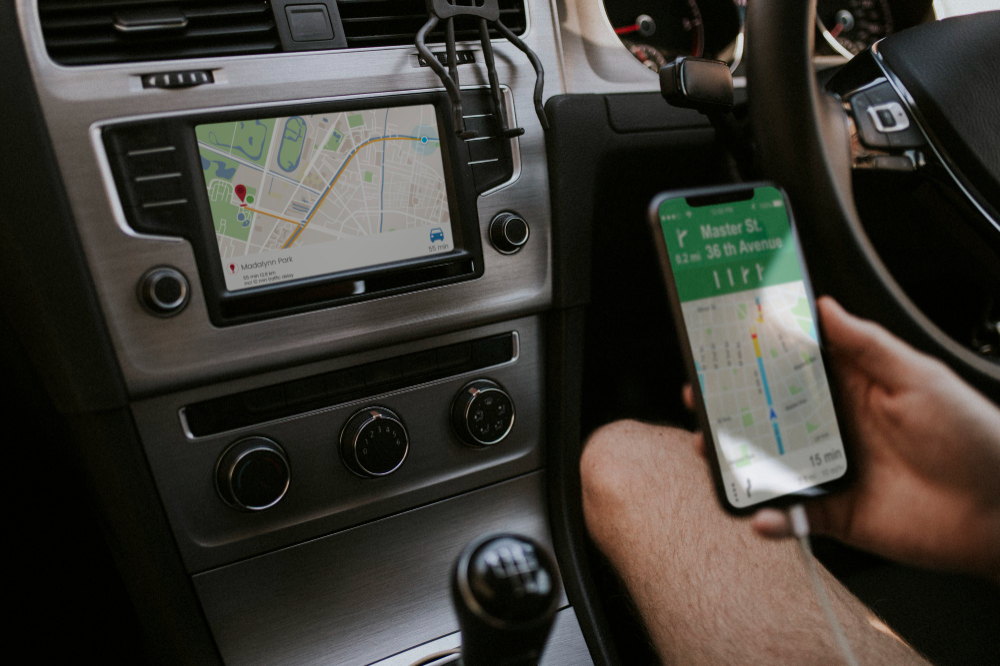GPS technology has changed the way we move around and get around. The GPS network consists of a series of satellites, which supply real time location data that can specify the geographic coordinates of a receiver. GPS tracking devices have become widely used by individuals, vehicles, and public transit systems in recent years as an important means to improve daily travel security.
GPS trackers specifically provide personalised location monitoring that makes people feel safer when they travel for work or for pleasure. New features, such as emergency response capabilities, route tracking and geofencing alerts provide protections thatdid not exist before. As technology improves and GPS technology gets better, so too will the applications for promoting daily travel safety.
Understanding GPS Tracking Technology
GPS trackers enable you to track real time location with a combination of device hardware and software applications. A GPS receiver chip, which collects geographic data from satellites which store coordinate information, is part of the device hardware. The tracking program takes the data from this location and transmits it via cellular or radio signals to a software program that translates the data into something that is usable.
Most GPS tracking devices are placed on an asset that you want to track, such as a vehicle, personal item, or even a person. Then, at routine intervals, the devices can provide up to date location data to the selected software platform. There are certain enterprise level platforms which can track assets across countries and even continents. However, daily travel security personal GPS trackers generally offer location access within a phone application or web based dashboard.
Enhancing Personal Safety with GPS Trackers
Personalized monitoring with GPS trackers can help keep children, elderly persons, special needs individuals and any at-risk traveler safe. During school commute or during an activity with kids, parents can track kids’ location. While caregivers are using discrete GPS devices to track people who need specialized support and supervision, such as those with cognitive disabilities, Alzheimer’s disease or related dementias. This monitoring allows for independence, and individualized support.
Also included are supplemental safety features that many GPS tracking devices (like the wherifypik, mentioned above) possess, including call/SMS capabilities, concierge support buttons, and emergency/duress notifications. Some devices allow users to pre program numbers of automated emergency contacts. An emergency alert will trigger a voice call, a text notification with the user’s GPS location, and update the user’s position in the tracking dashboard. In critical situations this could call for aid at an exact place.
Vehicle Security and GPS Tracking
GPS trackers provide a reliable resource for enhancing vehicle security. Personal vehicle trackers typically plug into a vehicle’s OBD port beneath the dashboard to access power and connectivity. Once installed, device registration connects the tracker ID to the user account. Individuals can then monitor their vehicle’s location, status, and movements in real-time using a phone application or web login that displays a map overlay.
Vehicle GPS tracking helps owners recover stolen cars by transmitting location data after a theft event. Some trackers also offer backup batteries that continue transmitting for hours after power loss. Retrieval services leverage the provided location details to safely return a recovered vehicle. If faced with unauthorized vehicle use or deviations from expected routes, personal GPS trackers send instant alerts to notify owners. Combining GPS tracking with deterrent measures like audible alarms, window etching, or vehicle immobilization provides enhanced security.
Applications in Public Transportation
Public transit organizations also employ the power of GPS tracking to monitor buses, trains, light rails, and transportation infrastructure. Transit GPS systems enable dispatchers to supervise fleet movements in real-time for schedule and safety oversight. Riders rely on posted arrival time estimates enabled by these monitoring systems. Tracking data even empowers online trip planning tools and transit mobile applications to provide accurate route guidance using actual vehicle locations rather than strictly scheduled timing.
In cities like New York, London, Toronto, Los Angeles and others, transit agencies publish ridership data gathered through GPS trackers. This acts as a measure of service equity across neighborhoods. Additionally, transit riders can use agency-provided vehicle tracking tools to reduce waiting times at stops and stations. With these insights, daily commutes and travel become more predictable and efficient. Finally, should an emergency occur, GPS tracking enables fast reporting and resolves response by linking public safety answer points with transport vehicle locations.
Benefits for Cyclists and Pedestrians
Individual GPS trackers offer significant safety improvements for pedestrians and cyclists as well. Portable GPS devices attach to a traveller’s belt, backpack strap, or bike frame to actively track all movement including walking, hiking, cycling, and more. Detailed journey logging provides both retrospective analysis and real-time monitoring. For instance, designated contacts may watch real-time maps showing a companion cyclist’s position for enhanced security. Tracking apps even auto-send crash or fall alerts should they detect unexpected stops.
GPS navigation platforms catered to micro-mobility travel incorporate supplemental protections like group location sharing and community features. This allows solo adventurers to safely navigate while permitting friends to monitor progress. Mapping advancements specifically guide cyclists and pedestrians using routing tailored for non-automotive travel. As GPS tracking permeates pedestrian and cycling travels, it unlocks access to active transportation with heightened security.
Addressing Privacy and Security Concerns
Despite the many benefits provided by GPS trackers, these devices do evoke reasonable privacy considerations. Tracking an individual’s location without appropriate notice or consent raises significant ethical and legal issues. Even vehicle tracking could enable unwanted surveillance of personal activities if exploited. It remains important that personal GPS tracker owners fully understand the technology and thoughtfully establish parameters to prevent misuse.
Data security presents another valid concern in an increasingly connected world. Whether collected by government-run transit systems, rideshare platforms, personal vehicles, or individual devices, location data requires rigorous cybersecurity to prevent breaches. GPS tracker vendors must embed security protections like data encryption in their products while also respecting customer privacy through responsible data handling policies. With thoughtful safeguards in place, users can utilize GPS tracking confidently.
Future Trends in GPS Tracking for Travel Security
As GPS tracking technology evolves, so will its applications for protecting personal safety during daily transit. With self-driving vehicles on the horizon, integrated GPS will play an increasing role in automated vehicular navigation systems complementing embedded sensors. Enhancements like geofencing alerts will enable sharper monitoring of predefined geographical boundaries. Additionally, linking GPS trackers to smart home and personal assistant ecosystems granted even broader security integration.
Continued GPS infrastructure improvements across the globe will empower enhanced international tracking capabilities. Simultaneously, GPS chip miniaturization will enable discreet embedding in commonly carried items like wallets, purses, luggage and more. Finally, integrating supplemental connectivity like WiFi in GPS trackers accommodates tracking in dense buildings or urban infrastructure. Pairing these advances with emergency response cloud platforms will drive lifesaving connectivity potential.
Conclusion
GPS tracking provides an indispensable tool for improving personalized safety throughout daily travel routines. Access to accurate real-time location data is a comfort to children, elderly family members, those with special needs, public transit riders, solo adventurers, and everyday commuters. This technology will prevent emerging travel risks by continuous improvements in GPS tracking. From walking neighborhood sidewalks to riding trains home at night, to adventuring alone, GPS trackers give travelers everywhere the peace of mind to travel with confidence. The promise of a more protected mobile future is tied to the intrinsic value GPS brings to personal welfare safeguarding during daily transit.

